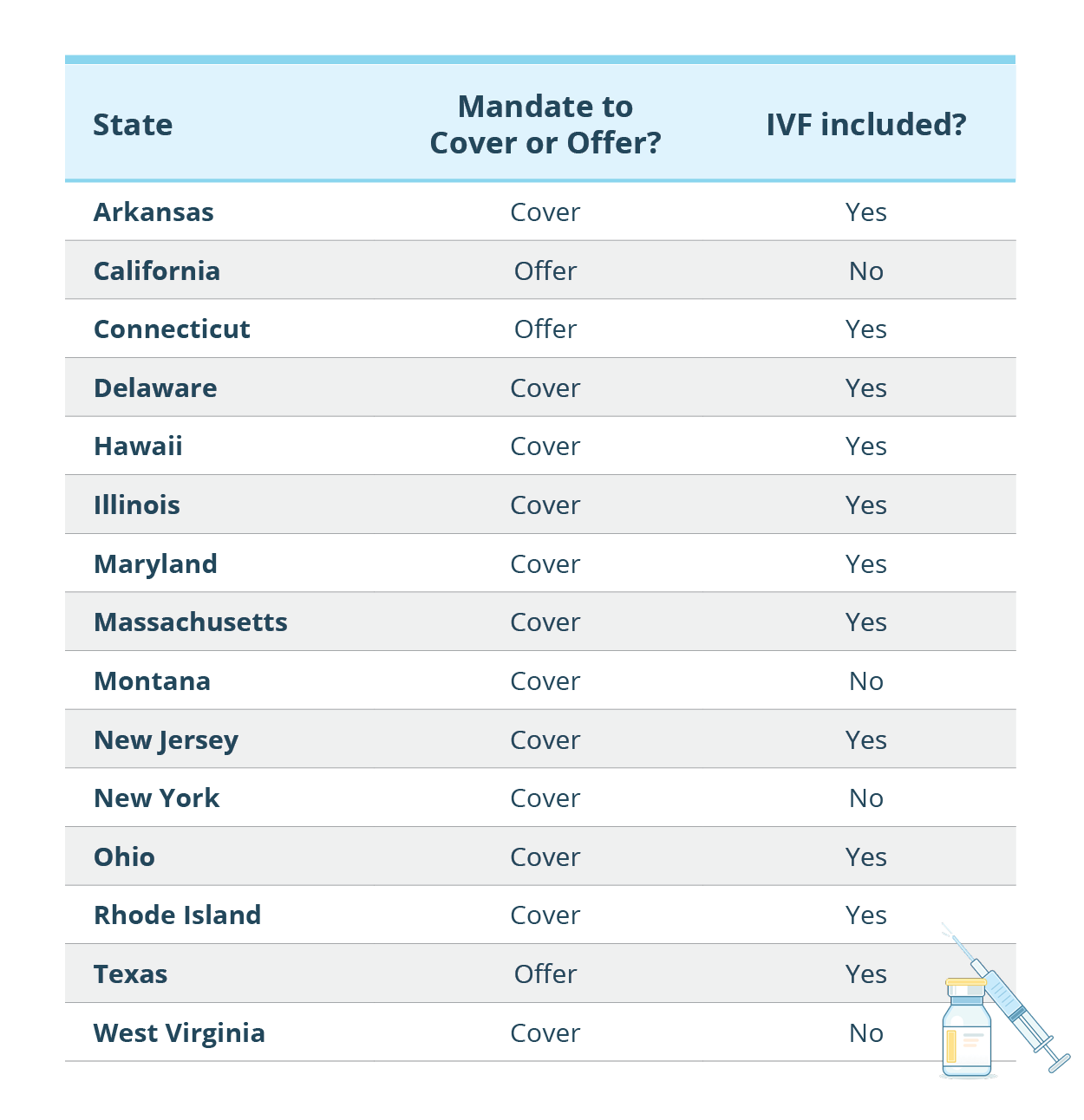Infertility Treatment and Your Insurance Coverage
Couples who have been trying to conceive for over a year are typically diagnosed with infertility, which is the difficulty or inability to get pregnant. Even though infertility is a common condition (it affects around 12-15 percent of the population!), its treatments are not always covered by health insurance. Here’s what you need to know about infertility treatment and insurance coverage.
Some States Have Mandated Insurance Coverage for Infertility Treatment
In certain states, insurers are legally required to offer infertility coverage, but this requirement looks different in every state. For instance, some states require all plans to help pay for infertility treatments (a mandate to “cover”), while others only require insurers to offer one plan with infertility benefits (mandate to “offer”). Keep in mind that these mandates typically only apply to employer-sponsored plans; most individual plans or small employers (fewer than 50 employees), are not required to cover infertility.
You can see state-by-state details here, but here’s a quick breakdown of infertility treatment and insurance coverage across the U.S.
Finding the Right Insurance Plan
First things first: don’t automatically assume that infertility is a female condition. Male infertility is a factor in about 35% of couples struggling to conceive – so both partners should make sure to have health coverage for necessary tests and treatments.
States With Mandated Coverage
If you live in a state with mandated coverage, you’ll have access to at least one health plan with fertility coverage, as long as you work for a larger employer. Be sure to call your current OB/GYN or fertility specialist to see which plans they accept.
Inside tip → If your plan covers IVF treatments, don’t forget to ask your doctor to order labs and tests at a facility that is in-network. Otherwise, you may be billed full-price.
Because infertility treatments, especially IVF, are so expensive, we recommend shopping for a silver, gold, or platinum plan. You can filter plan options by these metal tiers with our simple search tool.
States Without Mandated Coverage or You Are Self-employed
The health plans in your region most likely will not cover infertility treatments; that means you’ll be charged out-of-pocket. We suggest shopping for an HSA-eligible plan, so you can pay medical bills with tax-free savings. You can also call your OB/GYN and fertility specialists to confirm which plans they accept; they may be able bill certain services and visits as treatments for other health conditions.
The bottom line: if you want infertility coverage, you’ll need to do some digging.
Other Cost-saving Work-arounds
Infertility treatment can get expensive fast. A full round of IVF, for instance, usually costs around $12,000 out-of-pocket! If you’re unable to find a health plan that will help pay for the care you need, here are some potential cost-saving tips.
1. You may be able to bill some treatments for other health conditions. While infertility may not be covered by your health plan, other conditions that cause infertility–e.g. PCOS, endometriosis, and hypothyroidism–are covered. If you have one of these conditions, certain procedures (ie: sonohysterograms) and lab work (ie: testing hormone levels) can be billed accordingly.
2. You can often save money by paying cash up-front. Ask your healthcare providers if they offer cash discounts. Often, you can save 40 percent or more on lab work, appointments, and procedures by paying a fixed price at the time of your appointment. If you’re working with an infertility specialist, your provider may also have pre-set prices or payment plans available for certain treatments (like IVF).
Inside tip → When it comes to medical bills, don’t forget to pay with your HSA! This can save you a lot of money in the long run.
3. Some employers offer IVF coverage. Looking for a job change? Some large employers offer excellent IVF benefits. For example, Starbucks employees are eligible for $20,000 towards infertility treatments.
4. You can become an infertility advocate in your workplace. Work for a large company but don’t have infertility benefits? Try encouraging your employer to provide better coverage! Read the National Infertility Association’s tips on how to do this here.
5. There are resources and grants that can help you pay for treatments. Certain organizations, like WINFertility and BabyQuest Foundation, offer support to couples who need financial help. Check out a detailed list of grants and discount programs here.
Have a question about infertility coverage that wasn’t answered here? Looking to sign up for a health plan with better benefits? Reach out to our team of health insurance specialists!

